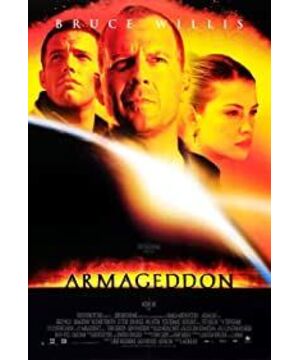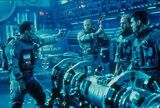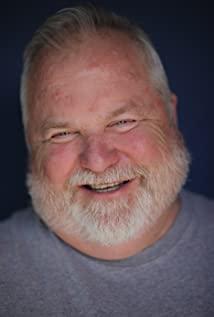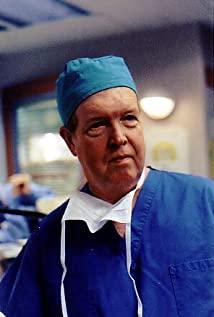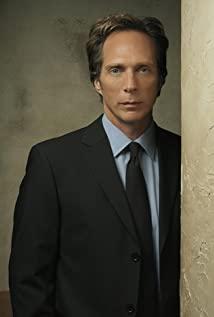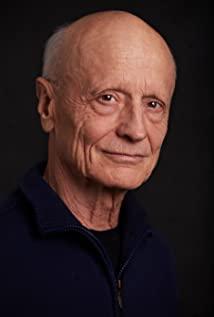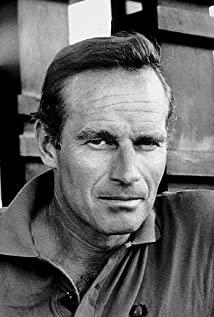The English title of "The End of the World" is "Armageddon", which is derived from the "Bible·Apocalypse" and is translated as "Armageddon" in Chinese. battlefield. "The end of the world" is not only a religious prophecy, but also a topic that scientists have been paying attention to and researching. Scientists' answers to this topic have been controversial over the years when the universe ends. Someone once speculated that the entire universe would disappear and die in 22 billion years, and astrophysicists in California also predicted that the universe will have 11 billion years of life. Later, a research team led by Andre Linde, an astrophysicist at Stanford University in California, reported that the universe has a lifespan of 24 billion years. The film "The End of the World" was released in 1998. It was obviously a creative product of science fiction and film art thinking based on religious prophecies and scientists' speculations at the end of the 20th century. However, what it shows is not a negative end-of-the-century complex, but highlights the positive spirit of mankind to fight the disaster of the universe.
The narrative of "The End of the World" is based on sequential structure. The reason it produces the most touching artistic power lies in using images to describe things, borrowing things to write about people, and implying things, empathizing with things, through major science fiction themes, in the framework of a disaster film, focusing on the giant and focusing on the details. In the action of several seemingly ordinary drilling workers to save the earth and mankind with fearless self-sacrifice spirit, with the real and vivid life details, it demonstrates the great love of mankind and the beauty of ordinary human nature.
Although "The End of the World" is a science fiction, it undoubtedly selected a major theme that has a bearing on the life and death of humankind in the world. According to the statement made by the Director of Space Administration Dan Truman to Harry and his daughter, the meteorite that will collide with the earth is the killer of the earth. In 15 days, half of the world’s population will be burned to death by high temperature, and the other half will be frozen to death in the severe winter. In this context, the film integrates two narrative forces, namely the conflict between humans and cosmic disasters and the conflict between human concepts, and focuses on the process of drilling expert Harry leading seven oil well drillers to save the earth. In the middle, through Harry, his daughter Grace, and his daughter’s lover Ai Ji’s journey from contradiction, confrontation to unity, expresses the love of father and daughter, love of son-in-law, and friendship, showing the goodness of human nature, the beauty of human nature, and the courage to self for mankind The precious quality and spirit of sacrifice.
Drilling expert Harry and Ai Ji’s father are old friends. Ai Ji has worked under Harry for five years. He is an excellent driller who dares to think and dare to break through. Sometimes he is considered "do whatever he wants and do whatever he wants" for violating Harry's rules. . What was particularly difficult for Harry for a while was that he developed a lover relationship with his daughter, so he performed a farce in which Harry took a gun and chased after and scared Agie soon after the beginning of the film. The relationship and character of Harry and Ajon’s son-in-law are basically displayed through the clues of "five characters" in terms of plot arrangement and screenwriting skills. Aiji activated the closed well No. 2 and Harry asked him to "say five words, I won't do it again." According to his daughter's suggestion, Harry visited Aiji's well and asked him to drill a hole with the meteorite in outer space. Aiji was silly, and the condition was "I just want to hear you say five words." Harry turned reluctantly and turned to leave. Aiji had to follow him: "Why are you here? What's the matter?" On the meteorite, Harry, who was in despair, said sincerely to Aiji, who was driving the pangolin. , "I only want to say five words, it's nice to see you", although Ai Ji corrected it to "that's six words." From the moment he boarded the space shuttle, Harry had been fulfilling his promise to his daughter, paying attention to and caring for Aiji until he was willing to sacrifice himself for Aiji. Before the farewell, Harry confided through the lift door glass that he wanted him to take care of his daughter, and said that he had always treated him as a son.
Harry divorced his wife in the early years, and kept his daughter Griffin by his side. Her daughter also grew up among the drillers and became his father's assistant. The generation gap kept her calling her father's name. At first it was tense, she accused her father of controlling her life. At first, the father only had the worldly wishes of ordinary people, and did not want to work hard for many years, but let his daughter marry a vulgar person. This kind of stiff family love melted and warmed up at the moment when the mankind's catastrophe was approaching and his father was about to assume the responsibility of saving the earth. At the space agency, listening to Truman's heavy narration, the film highlights the silent daughter's hand holding his father's wrist in close-up shots. Both father and daughter know that mankind faces extinction is sacrifice, and there is sacrifice to save mankind from extinction. Under the monument to the martyred space hero, the daughter asked her father to promise "Don't say you won't come back" and "If it is not too troublesome, please bring my fiance back by the way." Since then, Grace's heart on the ground has been moved by her relatives in outer space, smiling and crying for her. Father Harry resolutely decided to dismantle the nuclear bomb that was about to detonate, not only because "not detonating the nuclear bomb under 800 feet, it is just an expensive firework show", and because "I promised my daughter I will go home", he cast his daughter and the fate of mankind. Together. In the end, he gave up his life for justice, leaving behind to detonate the nuclear bomb on behalf of Aiji, as the armband said, "for the benefit of mankind", but also sacrificed for the happiness of his daughter. The farewell dialogue between father and daughter 100,000 miles apart in space is the most brilliant highlight of the human affection and the beauty of human nature rendered in the film. Harry told his daughter that he broke his promise and could not go back. The daughter also confessed that she also lied to him. Although she has always said that she is different from him, in fact, she is the same as him, and all the advantages come from him, and confessed affectionately that she loves him and is proud of him. He said goodbye to his daughter with tears and responded with her daughter: "I love you too. Dad, don't go!" The video screen image imprinted Grace's unwillingness to let go on the screen with only snowflakes.
At this point, what "The End of the World" makes viewers pay attention to is not whether the "world" really has the "doom", but is shocked by the spirit of sacrifice and the real characters and their true emotions, especially human beings, who have the courage to save the world in the face of human disasters. The common nature. For this reason, when he was advancing for the space warriors, the President of the United States declared that "I am not speaking as the President of the United States tonight, and I am not the head of a country, but a member of mankind." The biggest challenge is that the "Bible" says that this is the end of the world and all things are destroyed. However, this is the first time in the history of the earth that human beings have the ability to avoid being destroyed." How much suffering has ever been, and after so many years, there is only one sentiment that can allow mankind to survive, and that is courage." Such loud and vocal words not only shed light on the theme of the film to conquer the disaster, but also add a brilliance to the value of the feats of 14 space warriors such as Harry, and also add humanity to the film.
The true nuances show human sincere emotions, human love, human ideals, and the good and evil of human nature. This is why those high-quality Hollywood movies can be used in major themes or disaster themes, and even imaginary science fiction themes. Mythological themes, fairy tales and other film frames are the most important secrets for making great achievements, showing their talents, showing their brilliance, and being popular, so as to conquer the world's audiences.
Another highlight of the film is the integration of "little people" and "big heroes". With the help of the "myth" of drilling workers to save the earth, it declares the valuable meaning of "personality is not distinguished from high or low, and heroes do not ask where they come from". In order to show the "smallness" of the "persons", the film adopts the method of contrast and comparison. Through the words of the "big guys" of the Minister of Defense, General Kim, the film questioned these people for committing robberies, being arrested or resisting arrest, and there was a person collecting money for the underworld. , Two people have been in jail, and the government has an annual defense budget of 250 billion yuan, but now it has to rely on a group of unreliable bad embryos to save the planet. As for Chu Men, the director of aerospace, he firmly believes and agrees that they are the top talents. In order to highlight the "big" of "hero", the film adds contrast and analogy. For example, Harry accused NASA of stealing his patents and accused the eight people who had been trained for eight months that they were very good "astronauts," but they didn't know anything about drilling holes. He also accused NASA of having no backup plan. On the meteorite, Agie, who escaped from the dead, confessed to the Russian astronaut Lev: "We are not astronauts, but oil well drillers!" Based on the principle of weightlessness described by the instructor during training, he decided to drive the pangolin to turn off the propellers. It drifted across the canyon, and finally saved the earth with the last gearbox and drill bit, which was comparable to the so-called "Russian real hero" and kept pace with it.
The film does not promote "little people" as "big heroes", but uses ordinary people, common feelings, constant hearts, and common shortcomings and even infrequent mistakes of ordinary people to show their "excellent skills" in unusual circumstances. Unusual, "abnormal and in harmony" choices, behaviors and character, which are credible and intriguing. For example, Oscar won a scholarship at the age of 12, published a paper at the age of 19, became a Ph.D. in chemistry and geography at the Massachusetts Institute of Technology at the age of 22, and taught books at Princeton University for two and a half years. He worked as a drill because of this profession. Can get a high salary, travel the world, and "play explosives." Before God, the drillers had a few "small demands". For example, Oscars had a few tickets that were not paid, and there were 56 tickets in seven states; Fedy had two girlfriends who wanted to be American citizens; Max wanted everyone to be a citizen. Use a cassette recorder; Cheek wants to live in Caesars Palace in the casino for a week; Big Bear wants to live in the Lincoln bedroom of the White House; and they don't want to pay any more taxes in the future, and they will never pay. When drawing lots to decide who should stay and detonate the nuclear bomb, the pervert said that he wanted to stay, not only for friendship, but also because he borrowed 100,000 yuan from usury, which was spent on strippers. The space shuttle landed in front of the Kennedy Center, and he asked everyone, "Now we are heroes, don't tell me what I am crazy about." The characters and their personalities shaped in this way are both believable and vivid, which makes the film humorous.
The dramatic conflicts in the film narrative are often unsettled, one after another, ups and downs, and ups and downs. Correspondingly, the image structure of the film is basically short-shot editing and fast-paced, and the emphasis is on the simple and straightforward narrative structure with "images" to create "plays", "plays" to write people, and "plays". Sending "meaning" makes the whole film acquire a "classic narrative" style in a broader context.
At the same time, the rhythm of the film's sound and picture editing has changed rapidly, and it has been retracted properly, focusing on the point of "seeing the spirit in the subtle". It is like a display of the disaster scene, like New York and Paris being hit by meteor showers, spreading out like clouds in many directions, angles, and ink. The "birth and separation" and "death" are especially exaggerated and strengthened. On the eve of ascending to the sky, Ai Ji and Grace meet before they start with the distant sunset, huts, cars, trees and people silhouettes in the song, and then pull up with the panorama of them hugging and kissing, accompanied by Ai Ji and Ge Liz embraced and lifted the rotating image frame, drawing into the vision of the sun, dark clouds, cars, houses, trees, and people, creating a long-lasting, tragic and beautiful realm. The film puts the farewell, exhortation and promise between Grace and father Harry under the monument, and uses the re-photographed dynamic picture composition to show that the daughter wants the father to promise to come back, and brings the fianc back by the way, and then the father makes a solemn promise At the same time, three helicopters flew in a formation in the blue sky overhead, and the close-up shot was pushed to the inscription "To commemorate the heroes of the heroic sacrifice of Apollo One", creating a tragic atmosphere and profound meaning of "the hero goes away." On the meteorite in space, when Harry bid farewell to Aiji and his daughter, he shouted: "We won, Grace!" While pressing the nuclear detonator, the film quickly shot from the pupils of the macro close-up with ultra-short shots. When Grace was playing on a swing in her childhood, the blue sky and white clouds, the daughter running, the open arms, the image of Grace in the wedding dress on her head and her affectionate look back, she melted into the dazzling light of the nuclear bomb explosion. These images, together with the two scenes of "Strong Journey" and "Triumph" redrawn using parallel montage and retransmission lens techniques, as well as the theme song "I Don't Want to Miss All of This" and its original theme song by Trevor Rabin The main melody that lingers throughout the film is cast into a typical "detailed image." This not only makes the film's "classic narrative" style incorporate the "imagery" elements, but also emphasizes the content of the relevant plot and presents poetic beauty.
View more about Armageddon reviews


